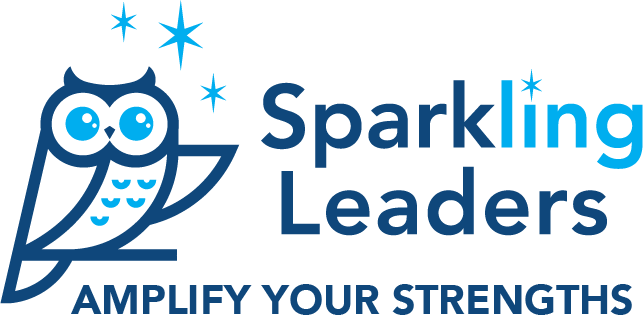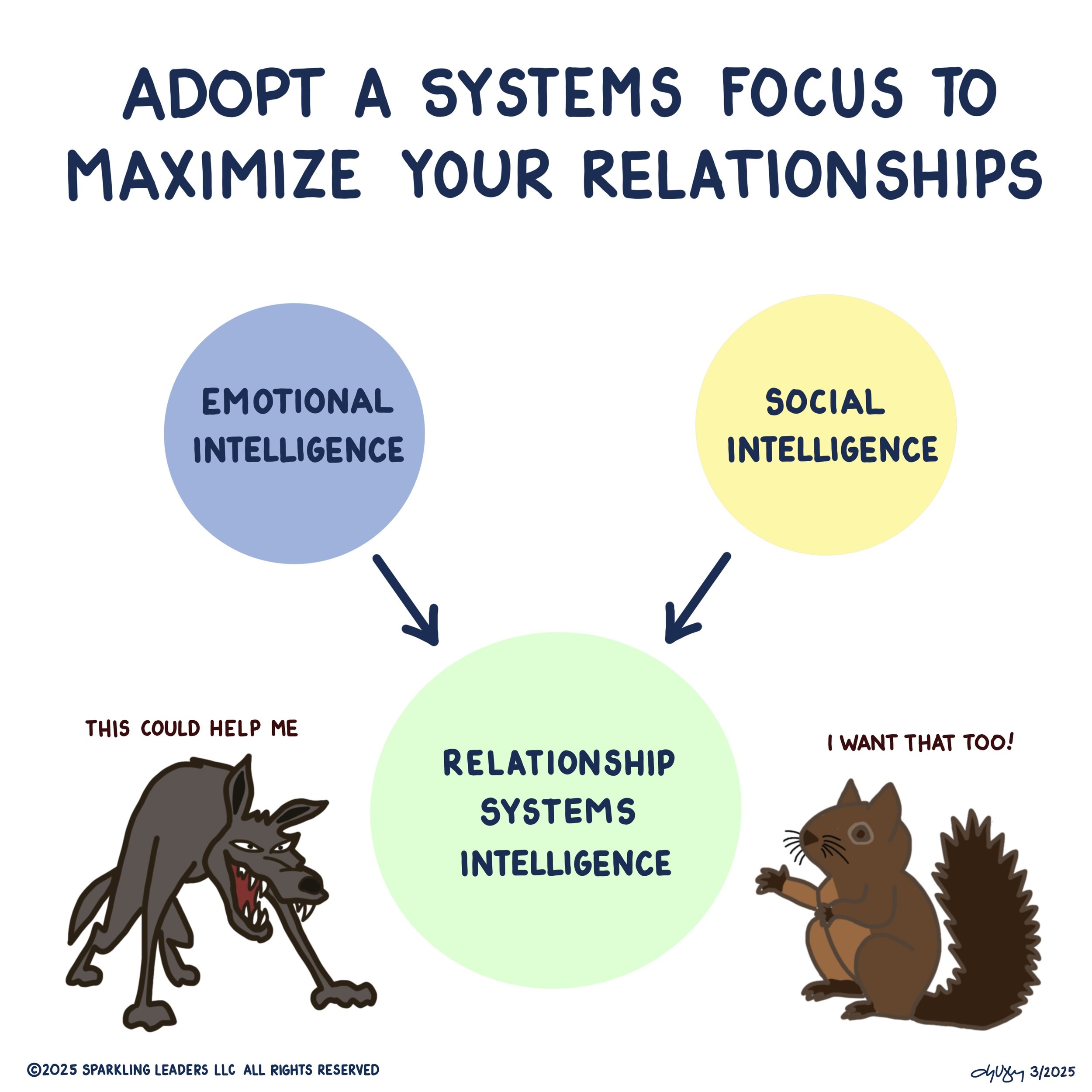Relationship Systems Intelligence (RSI)!
As part of my Worldwork project for certification in Organization and Relationship Systems Coaching (ORSC), I'm creating workshops that introduce how Relationship Systems Intelligence tools can empower those of us with neurodiversities like ADHD.
On April 15, 2025, at 10 am PT/1 pm ET, I will be leading a workshop on how Relationship Systems Intelligence can help you maximize your relationships. Register here if you haven’t already.
Let’s Start With the Premise That Systems Are Everywhere
A system is an interacting or interdependent group. We participate in countless systems daily—through family and friends, neighborhoods, workplaces, shopping habits, spiritual communities, and more.
So, What is Relationship Systems Intelligence?
Relationship Systems Intelligence (the ability to see/understand the whole picture) is built on Emotional Social Intelligence, understanding yourself (Emotional Intelligence), and understanding others (Social Intelligence). Relationship Systems Intelligence is the core of Organization and Relationship Coaching (ORSC, pronounced orsk).
The primary goal of a Relationship Systems Coach is to reveal the system to itself. Providing a systems perspective is often a catalyst for change. When a system can see its strengths, obstacles, and potential, its members can collaborate to find answers. By understanding RSI, you can unlock new potential in all your relationships.
The Five Principles of RSI
Each relationship system has its own unique identity or personality (Norms and behaviors)
Every member is a voice of the system (Listen to all voices - find the ~2% truth)
Systems are inherently intelligent, generative and creative (Look for what is trying to emerge)
Systems rely on roles for their organization and execution of functions. (Roles belong to the system, not individuals)
Relationship systems are in a constant state of emergence. (Create from the constant change, not against it)
Is RSI Something I Can Develop?
The short answer is yes! Almost everything you do in your personal and professional life depends on relationships - from the people you see most often to the person who sells you your food or pays you or helps you or gets in your way, all our interactions depend on our relationship skills to be successful. And every one of the people you interact with are also impacted by their family, community, and social interactions.
Each of the workshops this year will focus on one area where poor RSI often shows up.
Lack of understanding of strengths, weaknesses, values, passions, and apathy (May 20)
Undefined roles (Jun 17)
Poor or toxic communication (Jul 15)
Inability to recognize and recover from extreme discomfort (possibly Aug)
Undefined goals or lack of buy-in (Sep 16)
Lack of decision-making structure (Oct 21)
Inability to hear others and look for the positive (Nov 18)
Poor conflict resolution (Dec 16)
RSI Satisfies Several Identified Needs
As part of helping with our relationships, RSI will also help satisfy many of our individual needs as introduced by Maslow in 1943 in a paper on motivation. Having strong RSI helps satisfy many of our needs (Maslow's Hierarchy of Needs: Physiological, Safety, Love/Belonging, Esteem, and Self-Actualization) by providing:
Safety in teams through better understanding
Genuine belonging within our systems
Self-esteem through recognizing our contributions
Personal growth through systems awareness
For those of us with ADHD and other neurodiversities, understanding these principles offers powerful tools for navigating social complexities and transforming potential challenges into unique contributions.
Resources
Maslow, A. H., (1943). A Theory of Human Motivation. Originally Published in Psychological Review, 50, 370-396.
Uit de Weerd, F., & Fridjhon, M. (2021). Systems inspired leadership: How to tap collective wisdom to navigate change, enhance agility, and foster collaboration. CRR Global, Inc.
Fuller, F. (2023). Relationship matters: A new paradigm for an evolutionary leap in relationships. CRR Global, Inc.


